
It starts with egg farmers: How Start Clean-Stay Clean® supports on-farm food safety
By Egg Farmers of CanadaOur farmers produce high-quality eggs for Canadians. We support that commitment with a number of programs, including our on-farm food safety program Start Clean-Stay Clean®. Every egg farmer in Canada follows the program and is evaluated on the criteria during on-farm inspections. In fact, farms must meet these requirements to maintain their Egg Quality Assurance™ certification (EQA®). Here are the key facts you need to know about the Start Clean-Stay Clean® program and its requirements:
Built by experts
What informs the procedures included in the Start Clean-Stay Clean® program? Science. Input from leading food safety experts, regulators and farmers is the heart of the program. A semi-annual review ensures alignment with the latest scientific information, technical advancements, government regulations and best practices. The program is based on the systematic Hazard Analysis Critical Control Point (HACCP), an internationally recommended approach for food safety. The Canadian Food Inspection Agency acknowledges Start Clean-Stay Clean® as technically sound.1
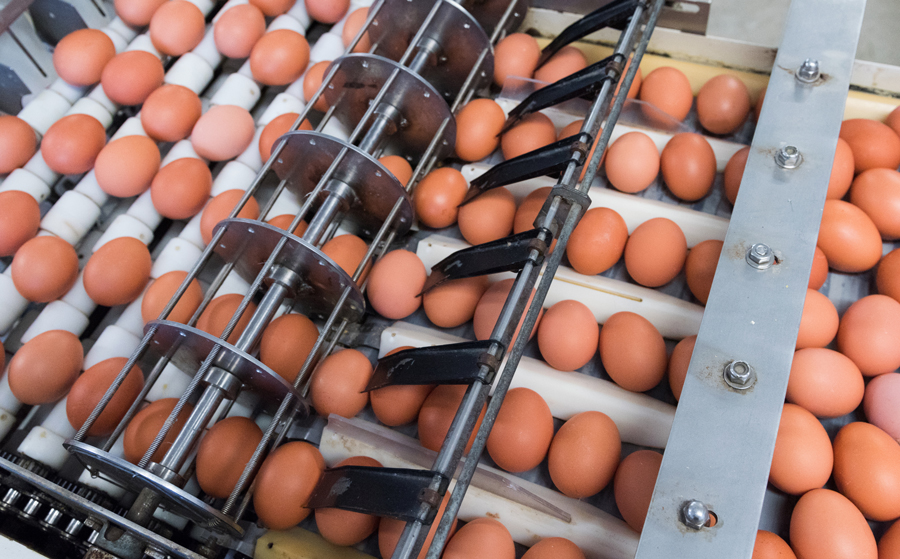
Program requirements
There are 15 critical control elements, and over 100 additional elements assessed and scored as part of Start Clean-Stay Clean®. Farmers must meet the requirements of all critical control elements, undertake a records review and receive a minimum score of 90% to receive their EQA® certification. Here are some examples of the program requirements.
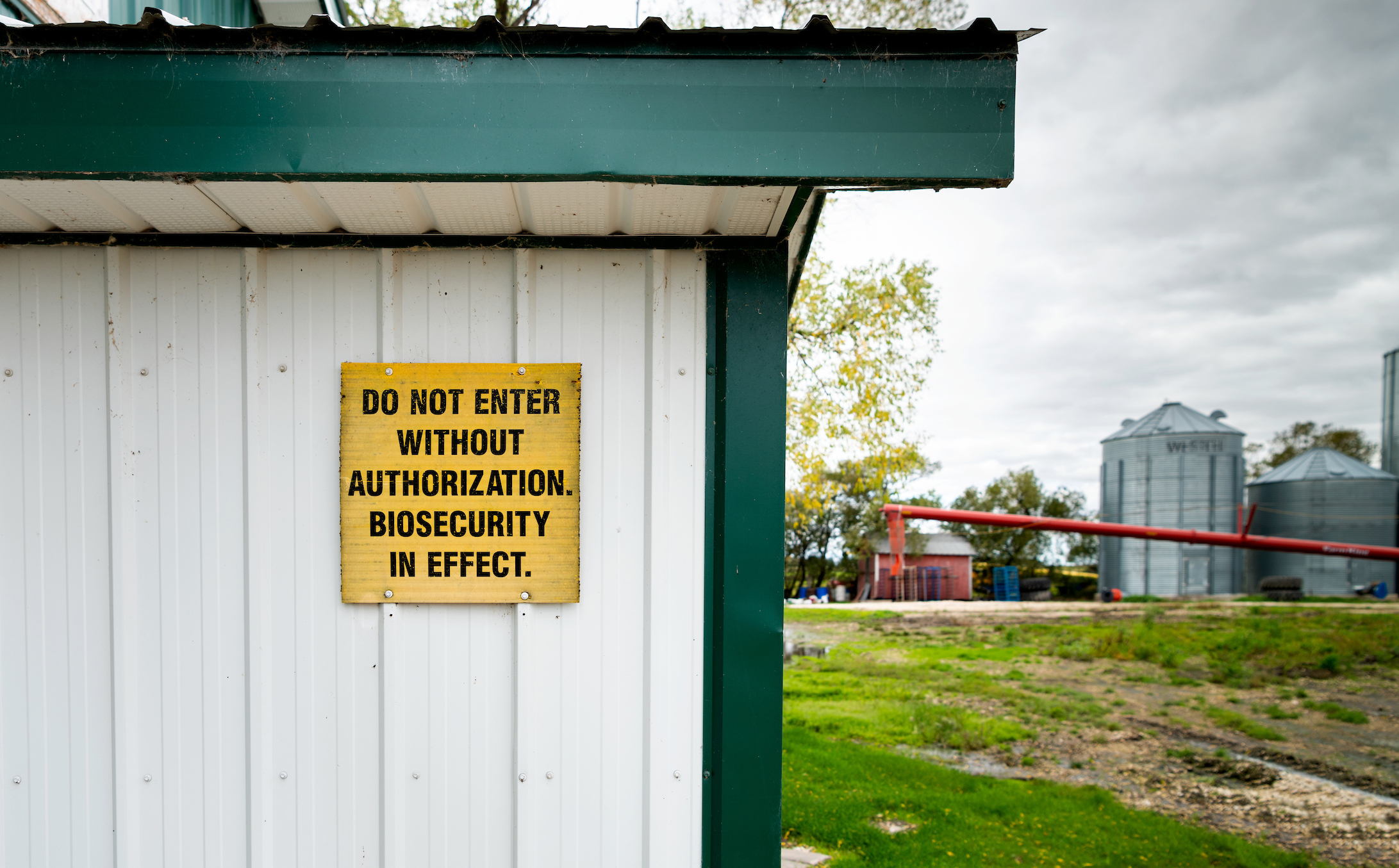
Biosecurity
To protect their flocks from pathogens and disease, farmers follow strict biosecurity protocols that divide space inside and outside the barn into restricted and unrestricted access zones.
Within the barn itself, you’ll find restricted and unrestricted biosecurity zones. Restricted zones are where access is limited and strict biosecurity is enforced. This includes where the hens live. Anyone entering the restricted zone must change their footwear, wear sanitary outer clothing, and wash their hands or use sanitizing lotion to protect the hens from pathogens.
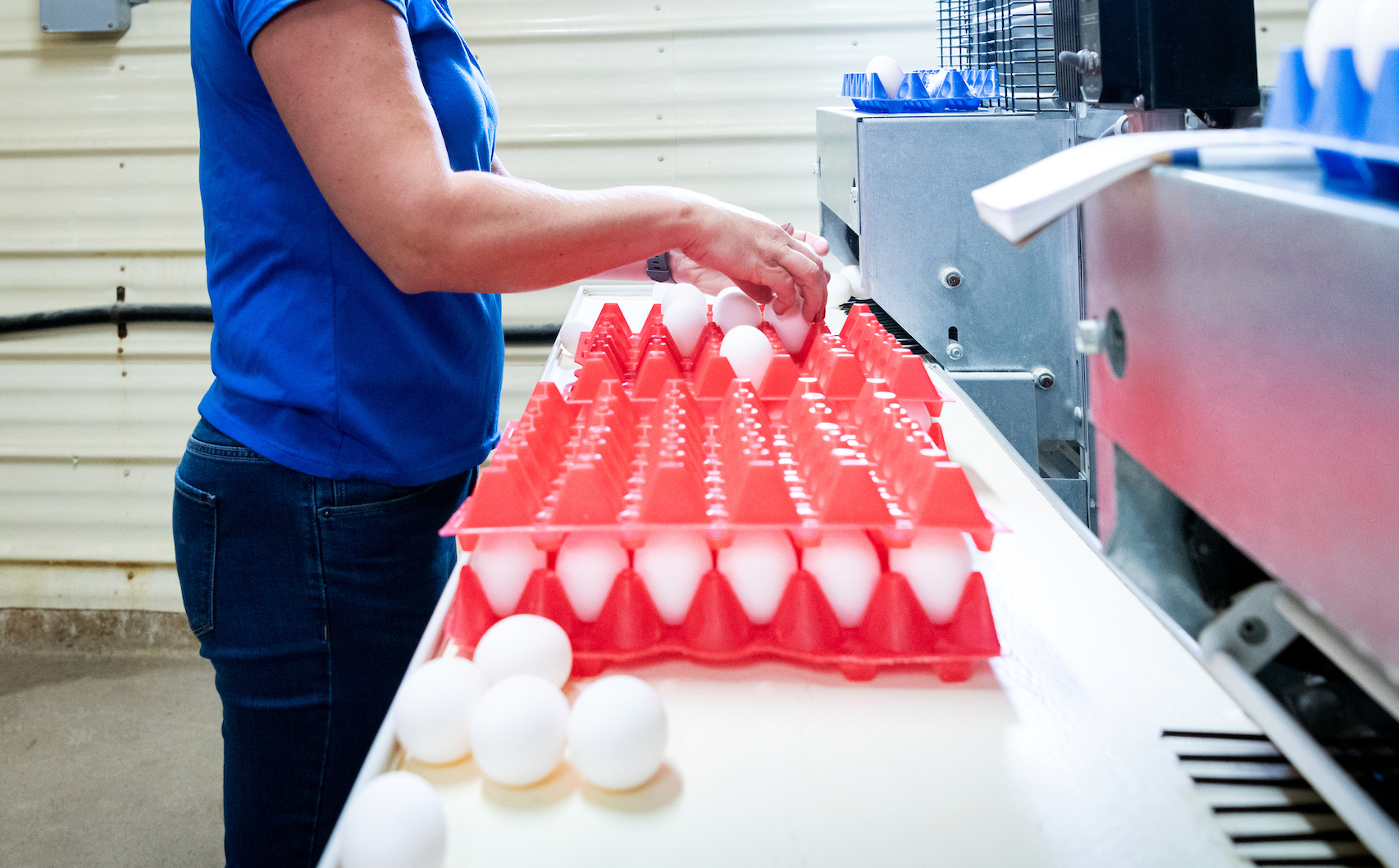
Egg collection and storage
Farmers must gather eggs daily and keep records of their production. These eggs must then be stored in a refrigerated storage space maintained at a prescribed temperature, with temperatures tracked and recorded daily.
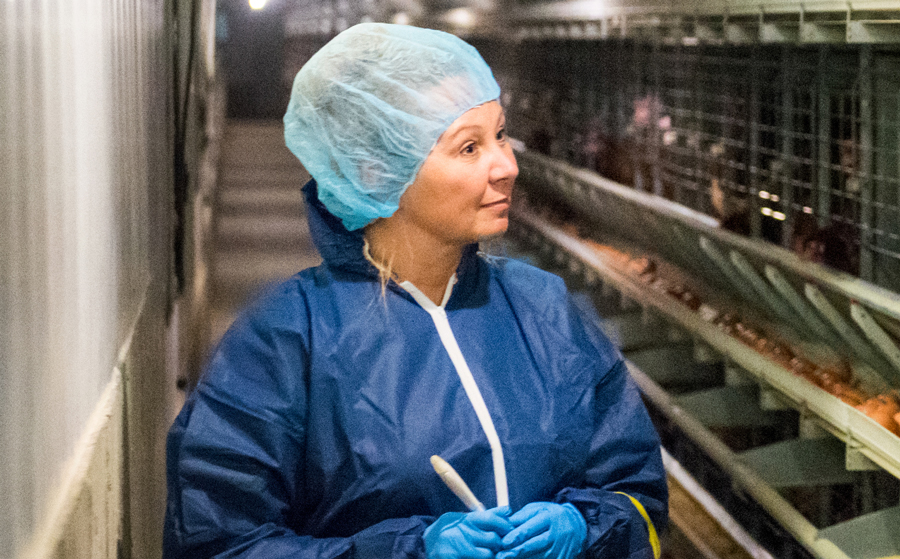
Facility hygiene
Farmers follow a thorough system of cleaning and hygiene maintenance within their barns. For instance, barn floors, walls, ceilings and equipment must be frequently cleaned and free from accumulation of dust, water and spilled feed. Farmers must follow a thorough cleaning and disinfecting process before each new flock moves into the barn.
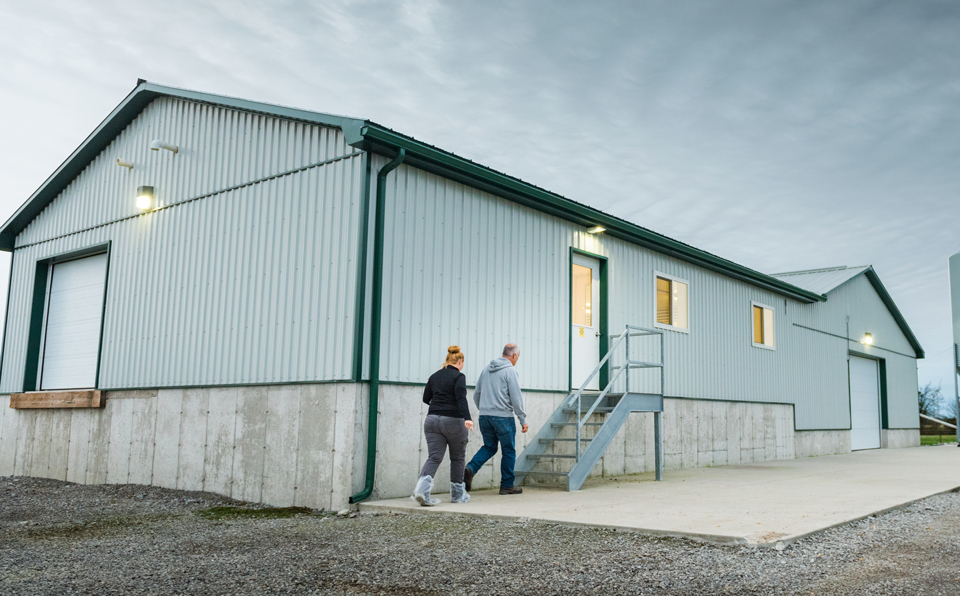
Pest control
Pests are part of life on a farm. That’s why egg farmers commit to an ongoing pest monitoring and control program. This ensures hens live in a clean, healthy environment. Pest control is critical since pests are the number one cause of pathogens affecting hens.
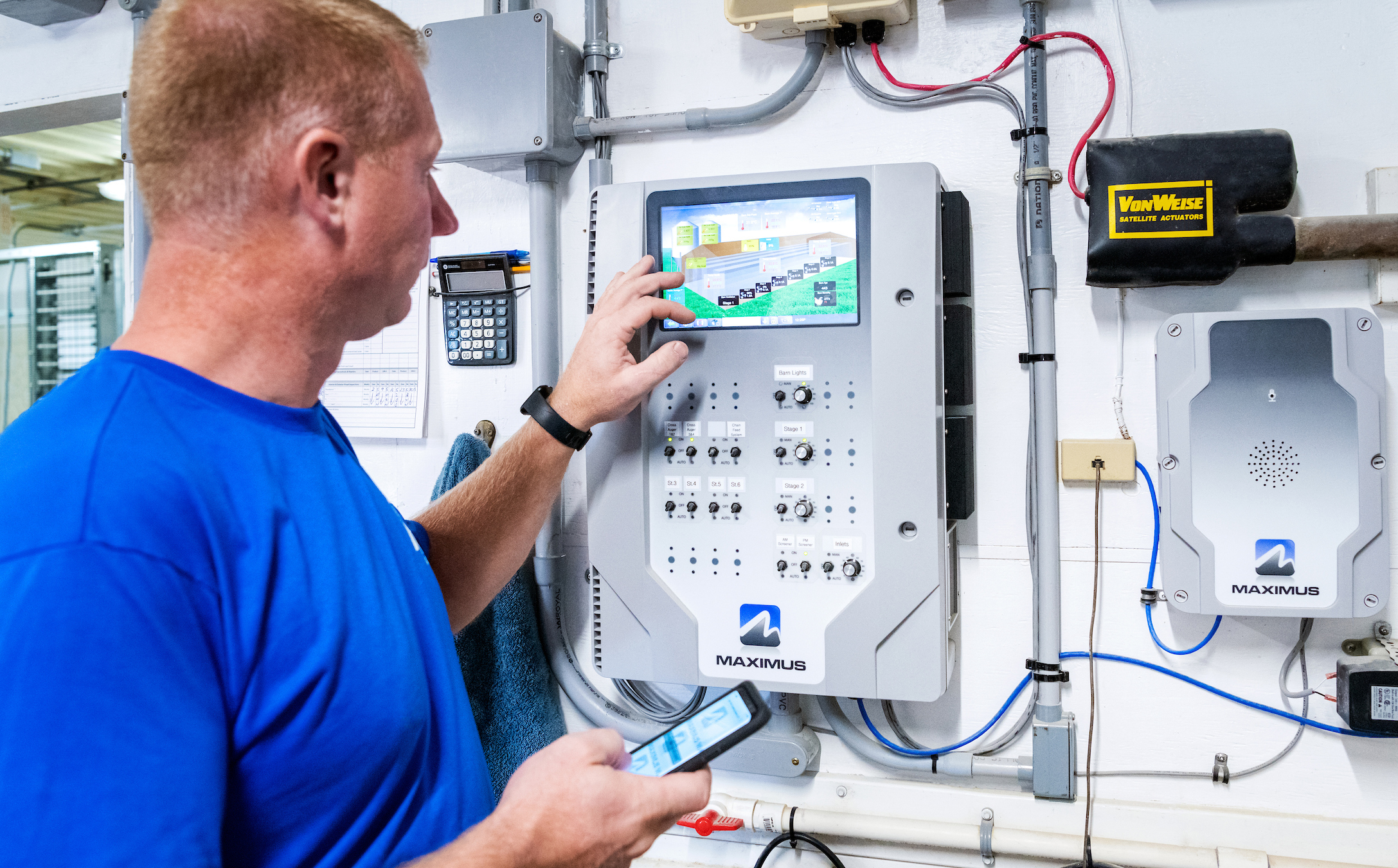
Record keeping
Keeping thorough records is an important part of managing a farm and maintaining quality standards, and farmers must complete a range of daily, weekly and monthly records. These include records for temperature, water testing, sanitation and more. Key suppliers provide Letters of Assurance to confirm they too are following the highest standards.

Safe, high-quality food for Canadians
Farmers must pass the Start Clean-Stay Clean® program audit to receive their EQA® certification–in fact, all eggs must meet these standards to be sold at a store or restaurant.
EQA® certified eggs have met the rigorous standards of Start Clean-Stay Clean® and the national Animal Care Program so Canadians get fresh, local, high-quality eggs produced by Canadian farmers to the highest standards. Click here to download our fact sheet and learn about the on-farm standards in place on Canadian farms.
1 Canadian Food Inspection Agency